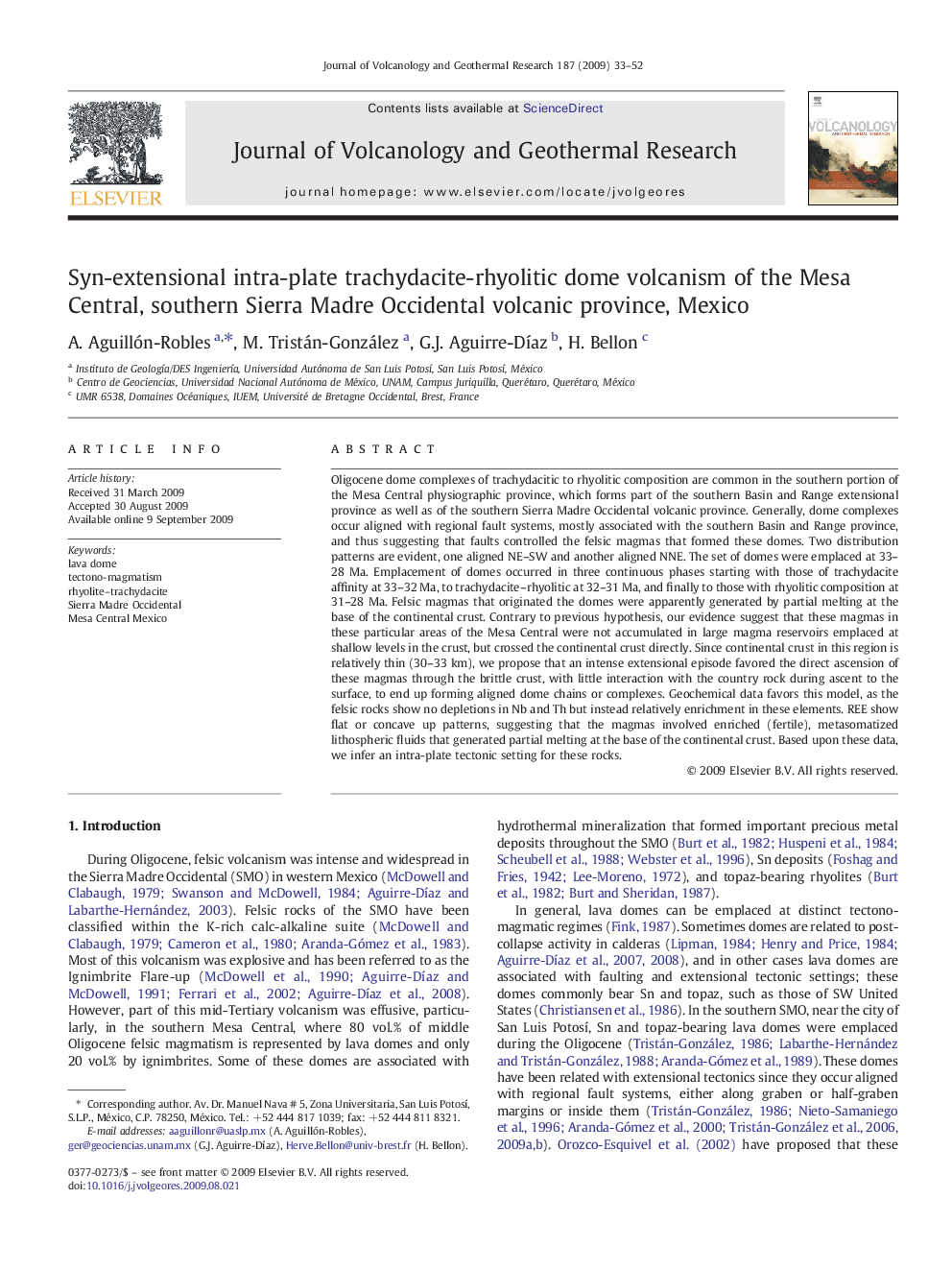| کد مقاله | کد نشریه | سال انتشار | مقاله انگلیسی | نسخه تمام متن |
|---|---|---|---|---|
| 4715197 | 1638430 | 2009 | 20 صفحه PDF | دانلود رایگان |

Oligocene dome complexes of trachydacitic to rhyolitic composition are common in the southern portion of the Mesa Central physiographic province, which forms part of the southern Basin and Range extensional province as well as of the southern Sierra Madre Occidental volcanic province. Generally, dome complexes occur aligned with regional fault systems, mostly associated with the southern Basin and Range province, and thus suggesting that faults controlled the felsic magmas that formed these domes. Two distribution patterns are evident, one aligned NE–SW and another aligned NNE. The set of domes were emplaced at 33–28 Ma. Emplacement of domes occurred in three continuous phases starting with those of trachydacite affinity at 33–32 Ma, to trachydacite–rhyolitic at 32–31 Ma, and finally to those with rhyolitic composition at 31–28 Ma. Felsic magmas that originated the domes were apparently generated by partial melting at the base of the continental crust. Contrary to previous hypothesis, our evidence suggest that these magmas in these particular areas of the Mesa Central were not accumulated in large magma reservoirs emplaced at shallow levels in the crust, but crossed the continental crust directly. Since continental crust in this region is relatively thin (30–33 km), we propose that an intense extensional episode favored the direct ascension of these magmas through the brittle crust, with little interaction with the country rock during ascent to the surface, to end up forming aligned dome chains or complexes. Geochemical data favors this model, as the felsic rocks show no depletions in Nb and Th but instead relatively enrichment in these elements. REE show flat or concave up patterns, suggesting that the magmas involved enriched (fertile), metasomatized lithospheric fluids that generated partial melting at the base of the continental crust. Based upon these data, we infer an intra-plate tectonic setting for these rocks.
Journal: Journal of Volcanology and Geothermal Research - Volume 187, Issues 1–2, 30 October 2009, Pages 33–52